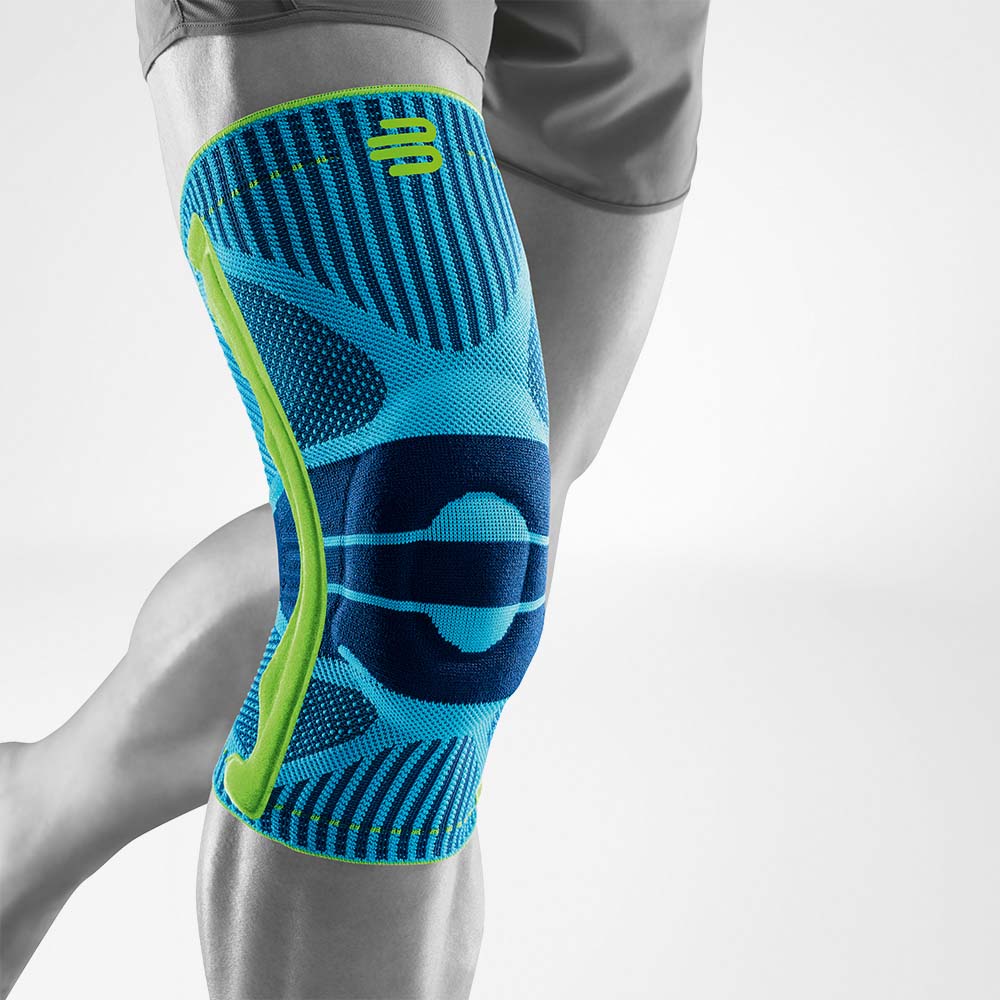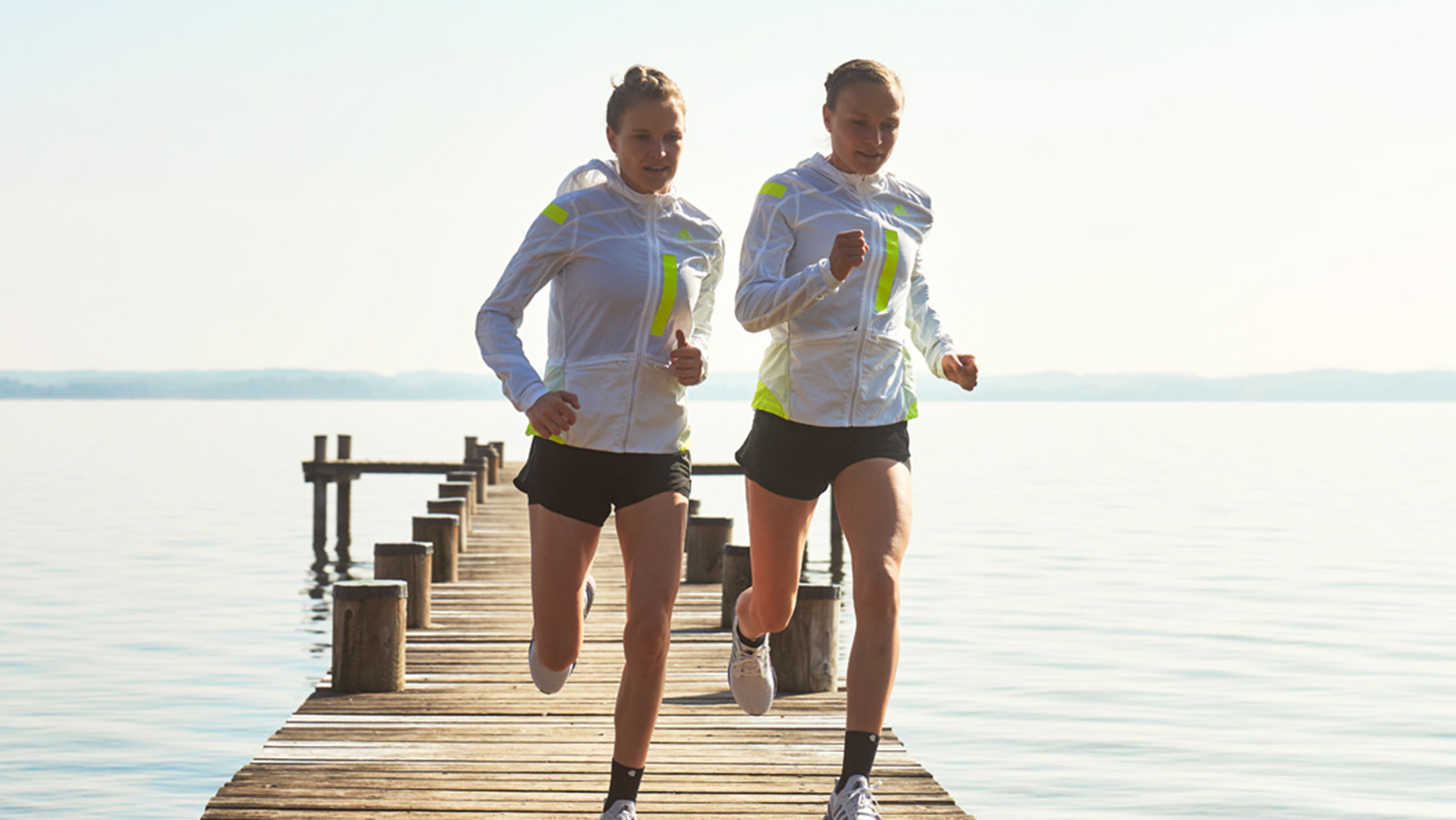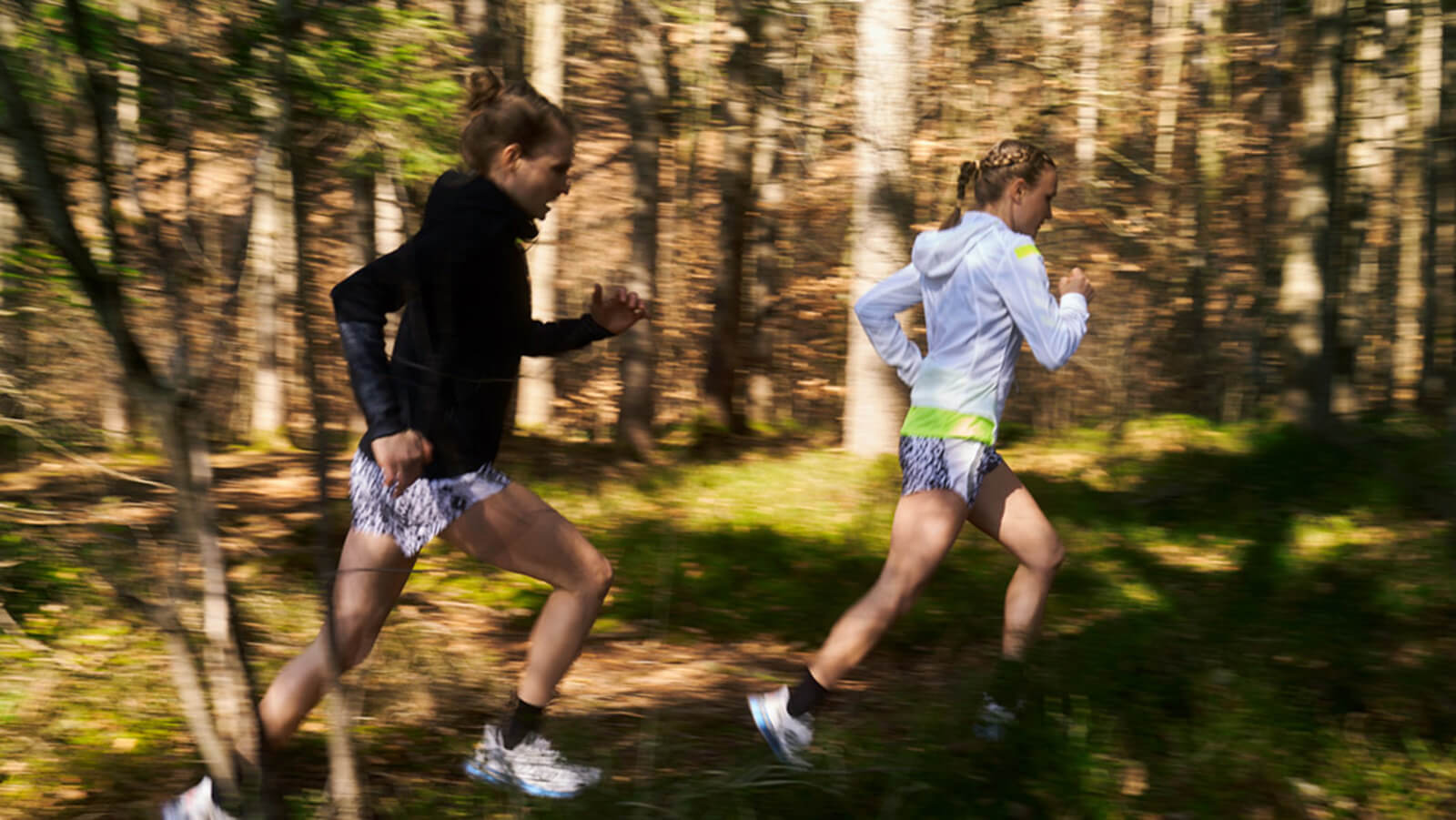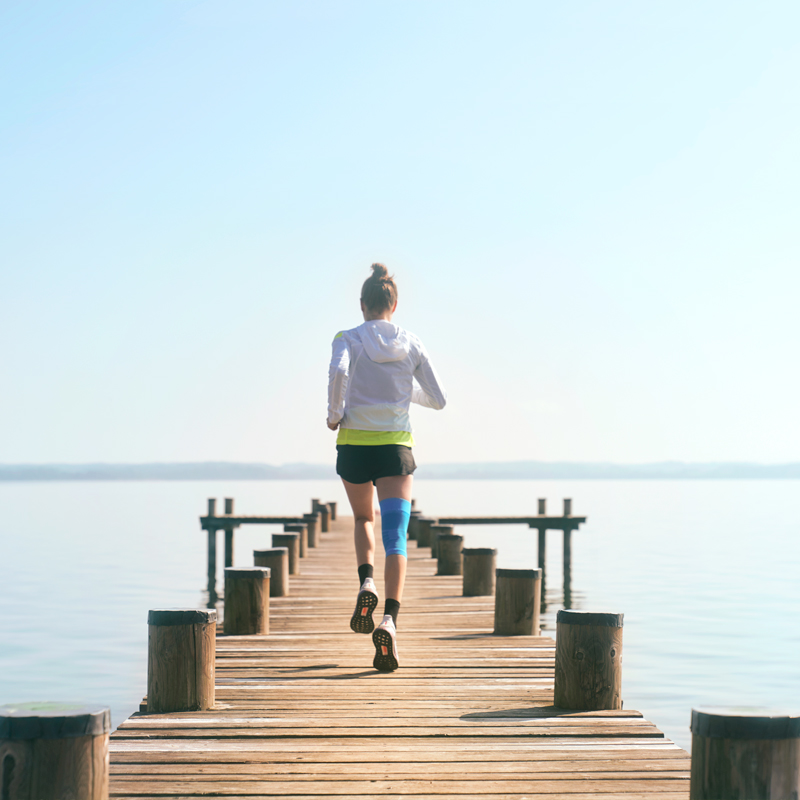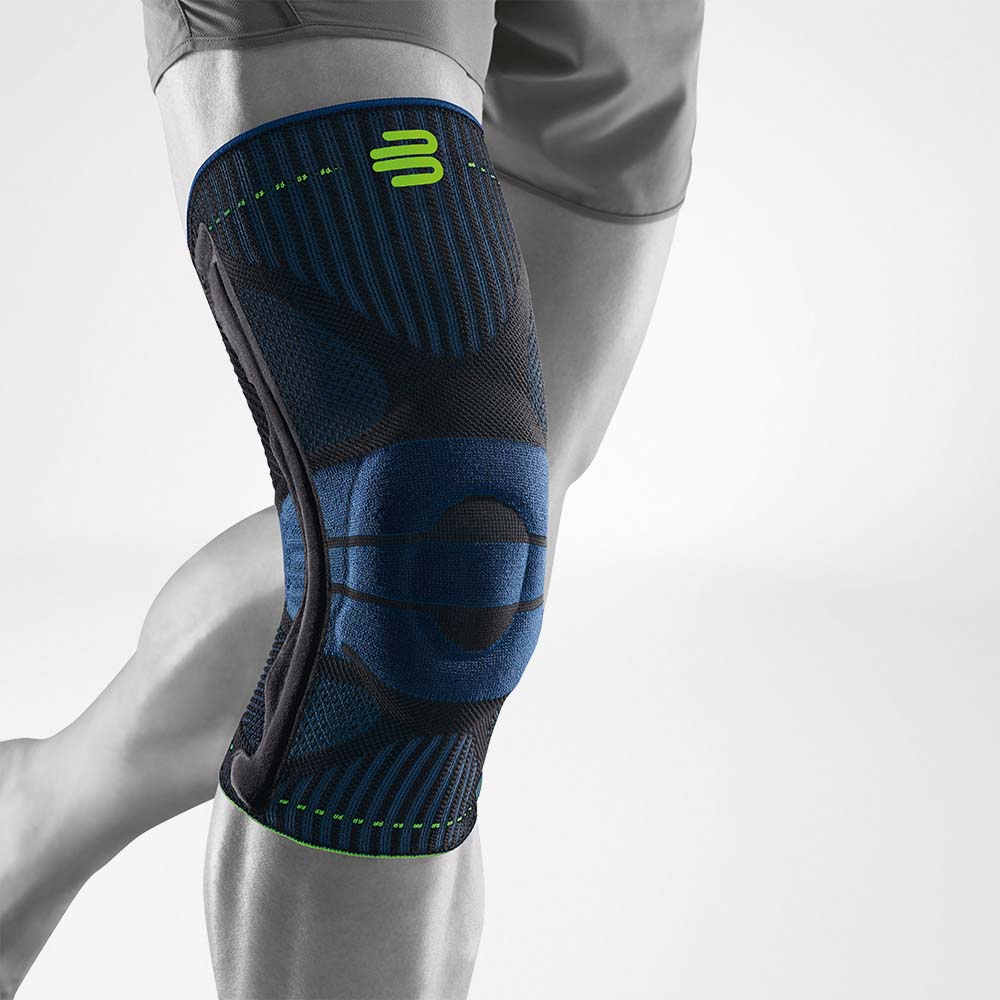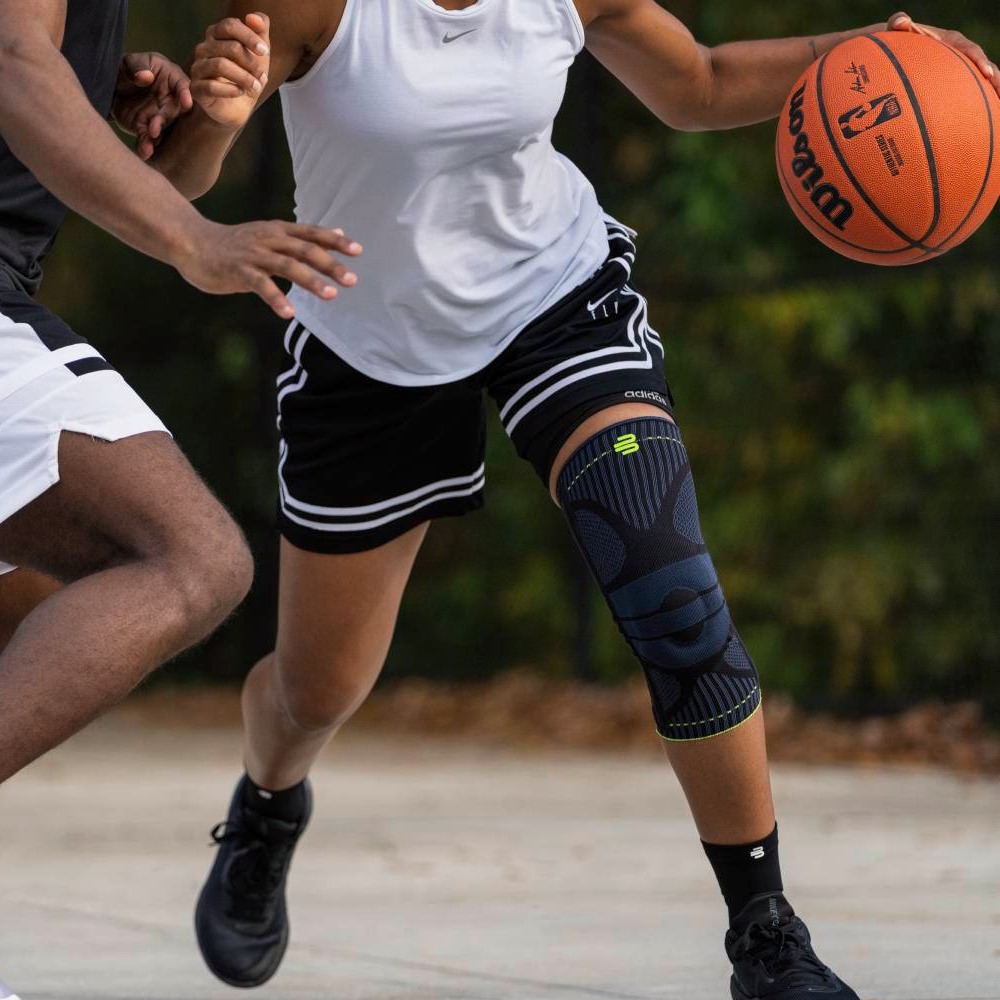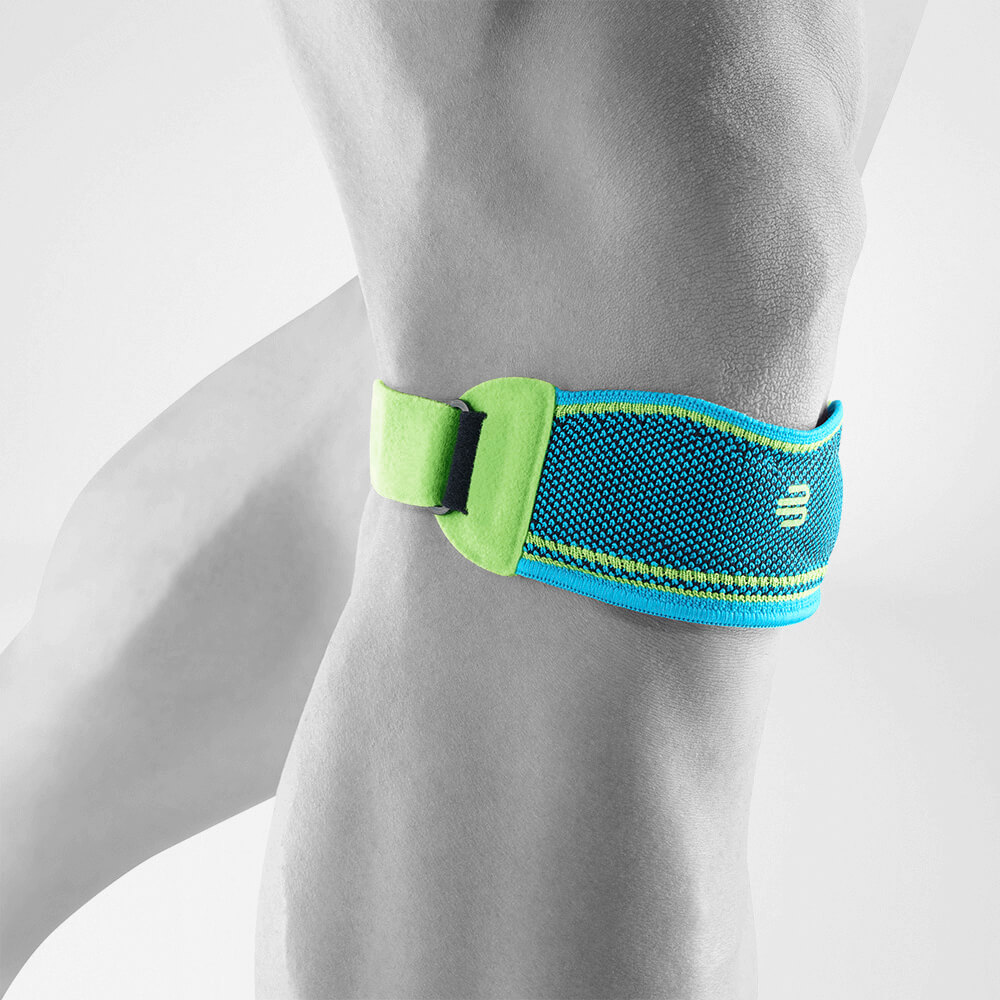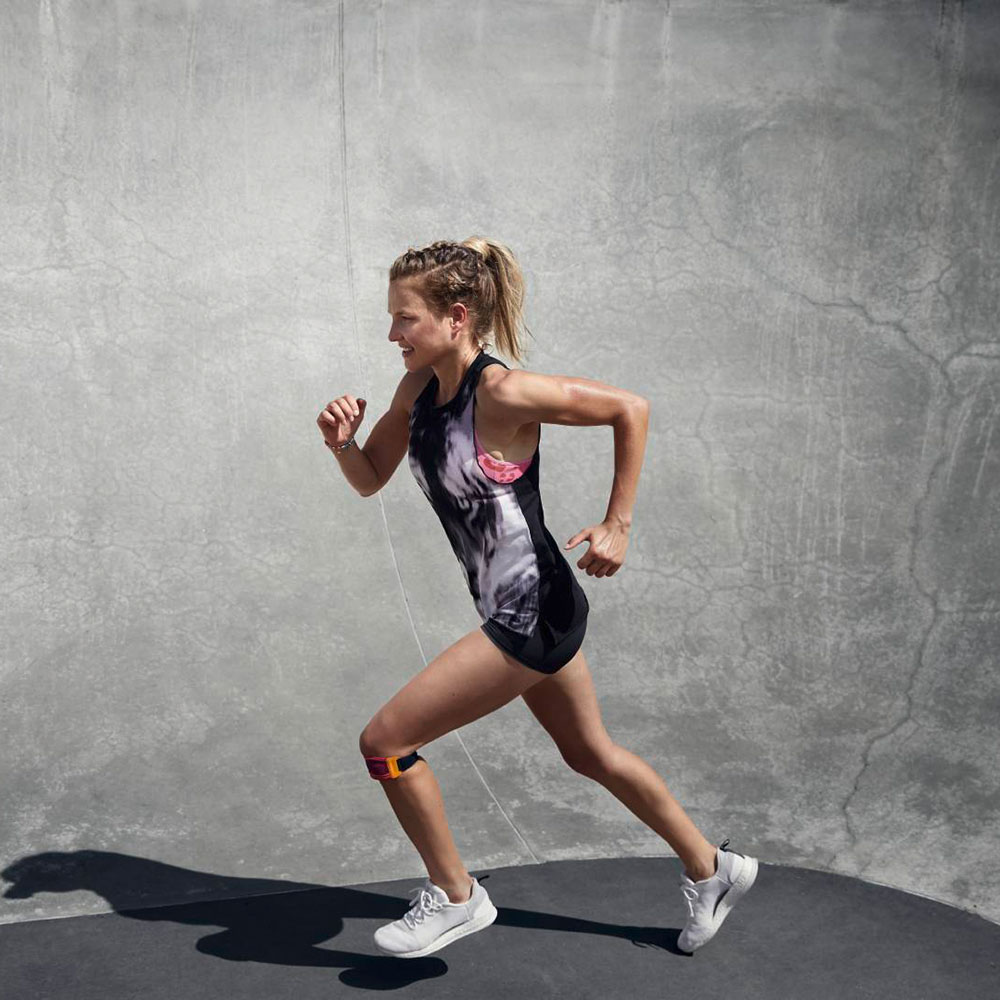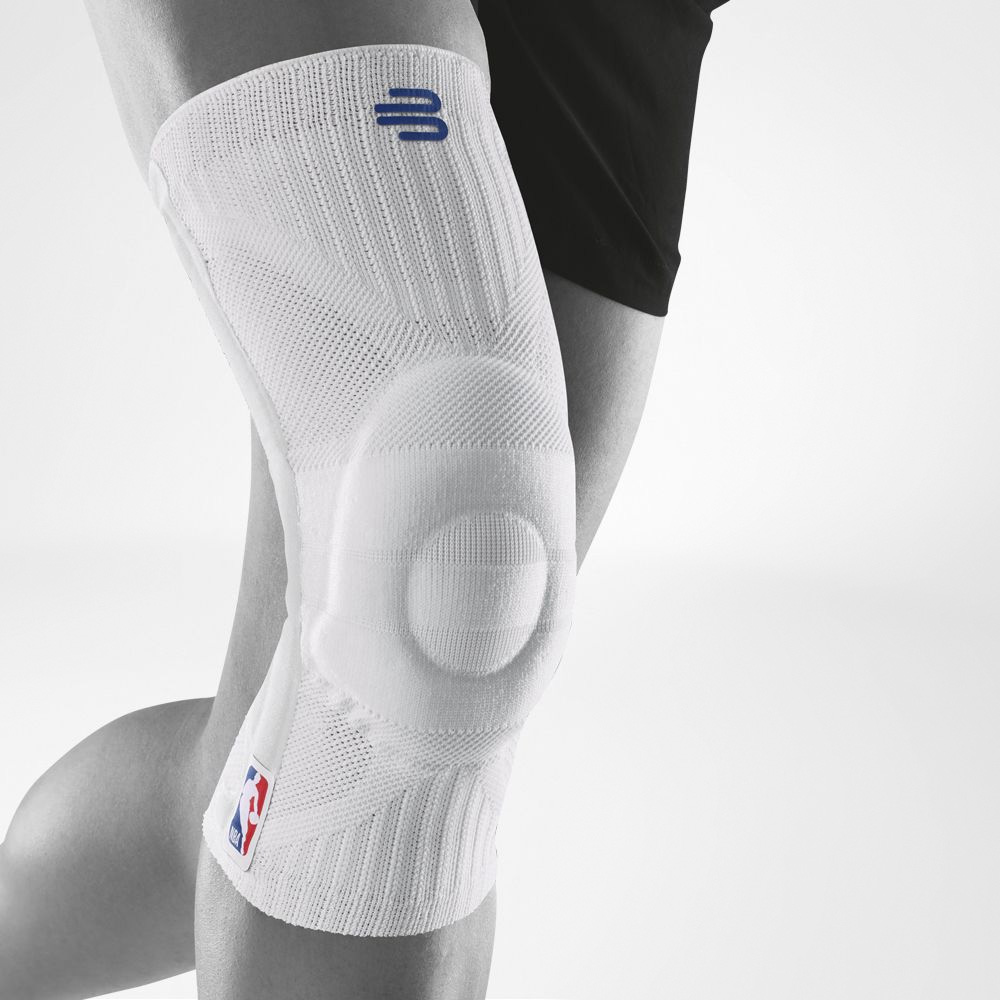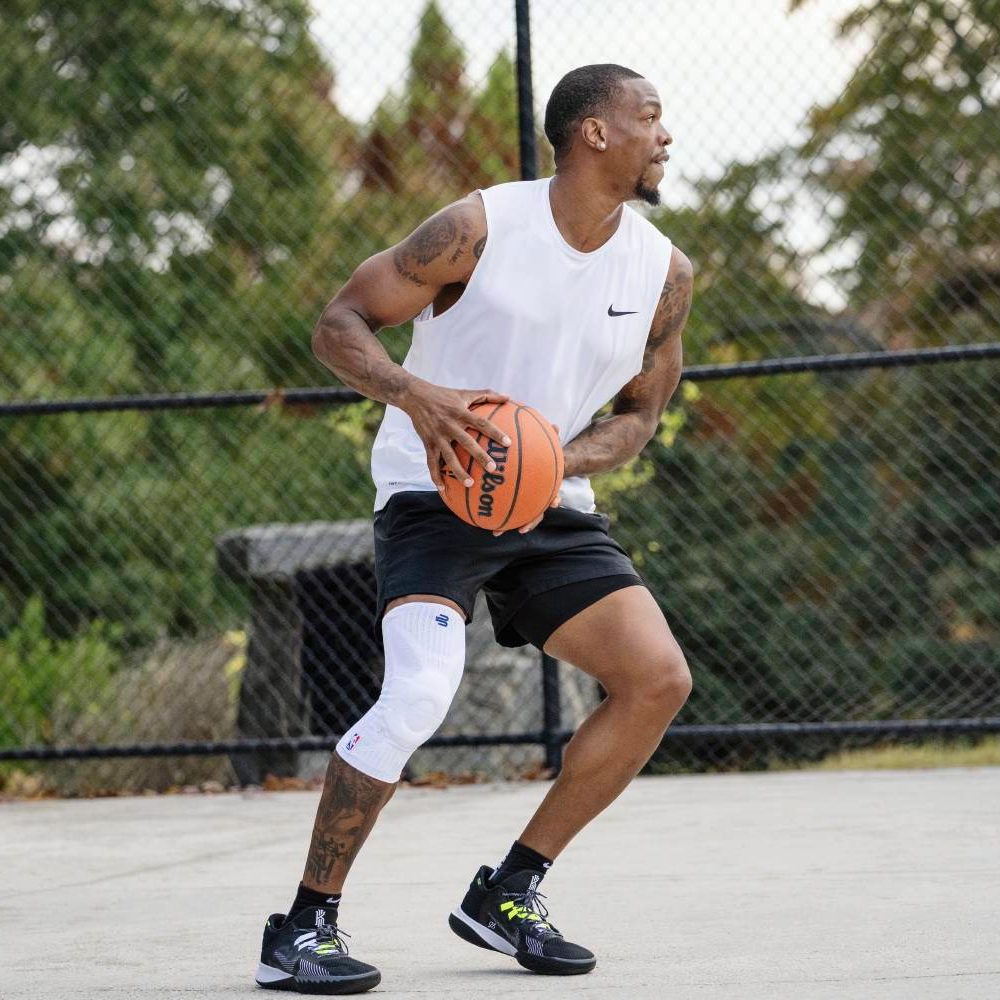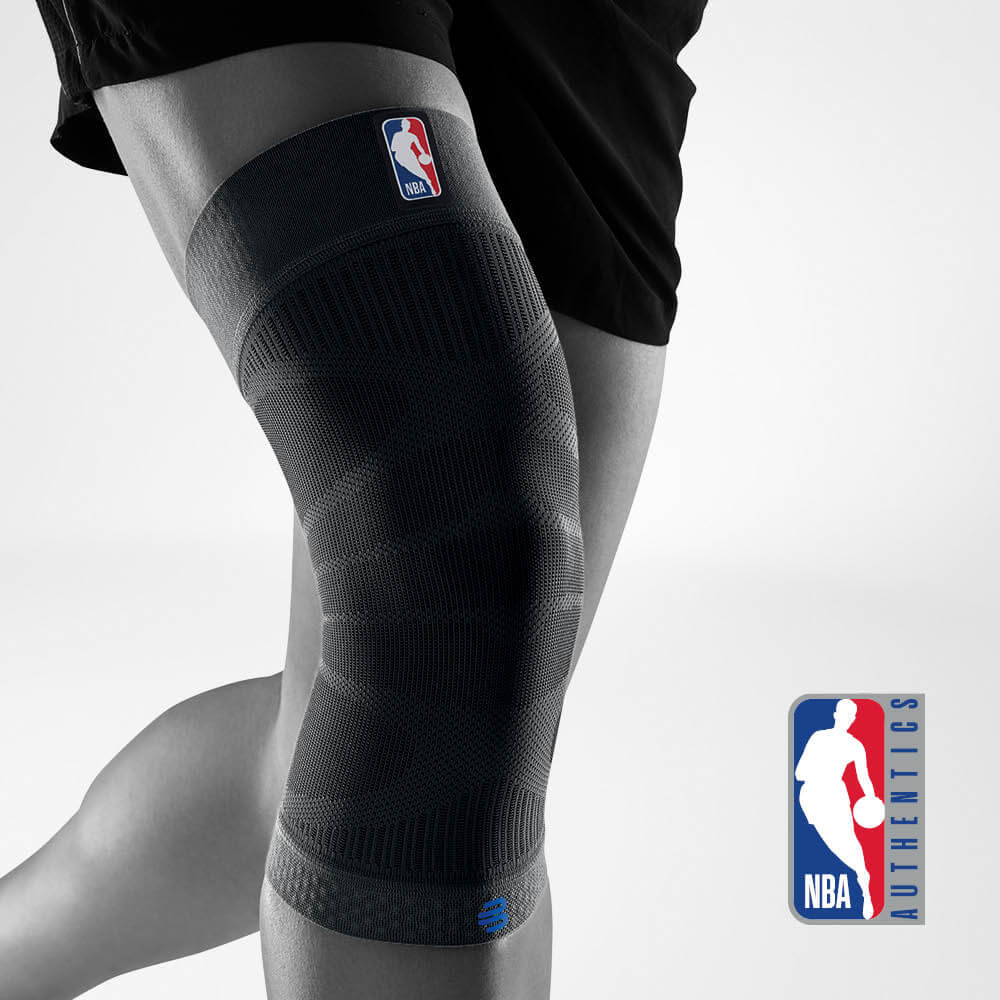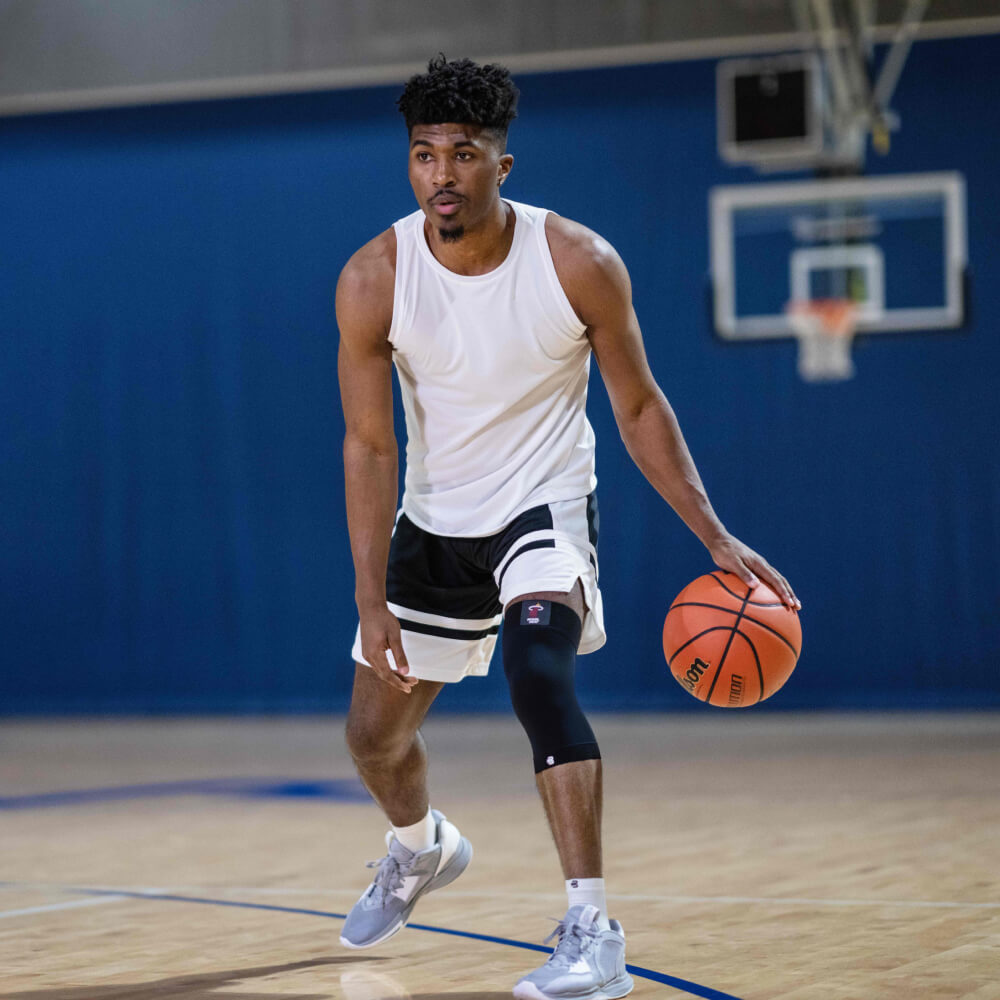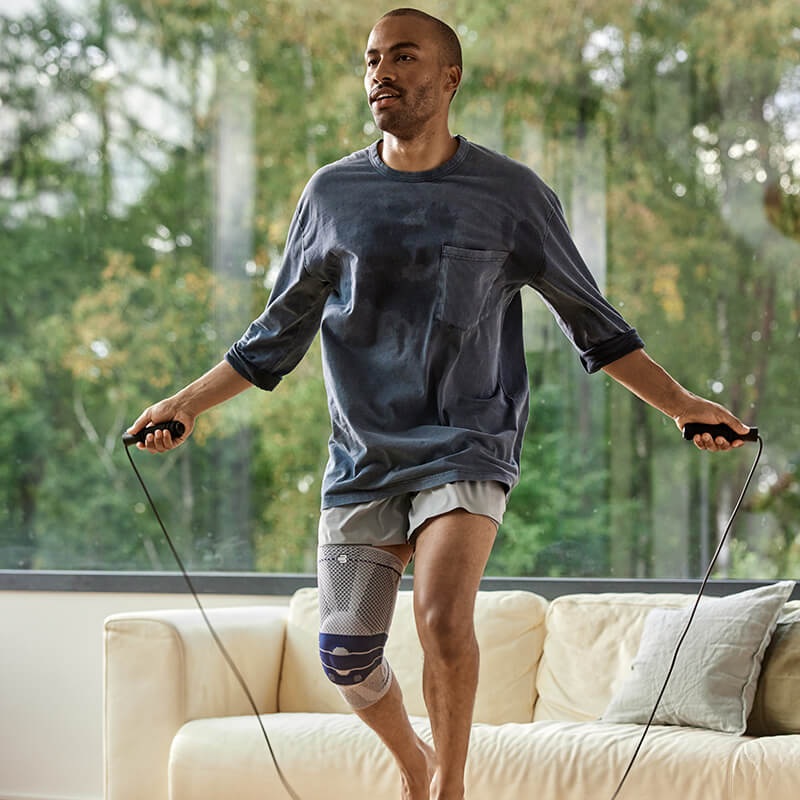Runner's Knee
Symptoms, causes and treatment options for patellofemoral pain syndrome.
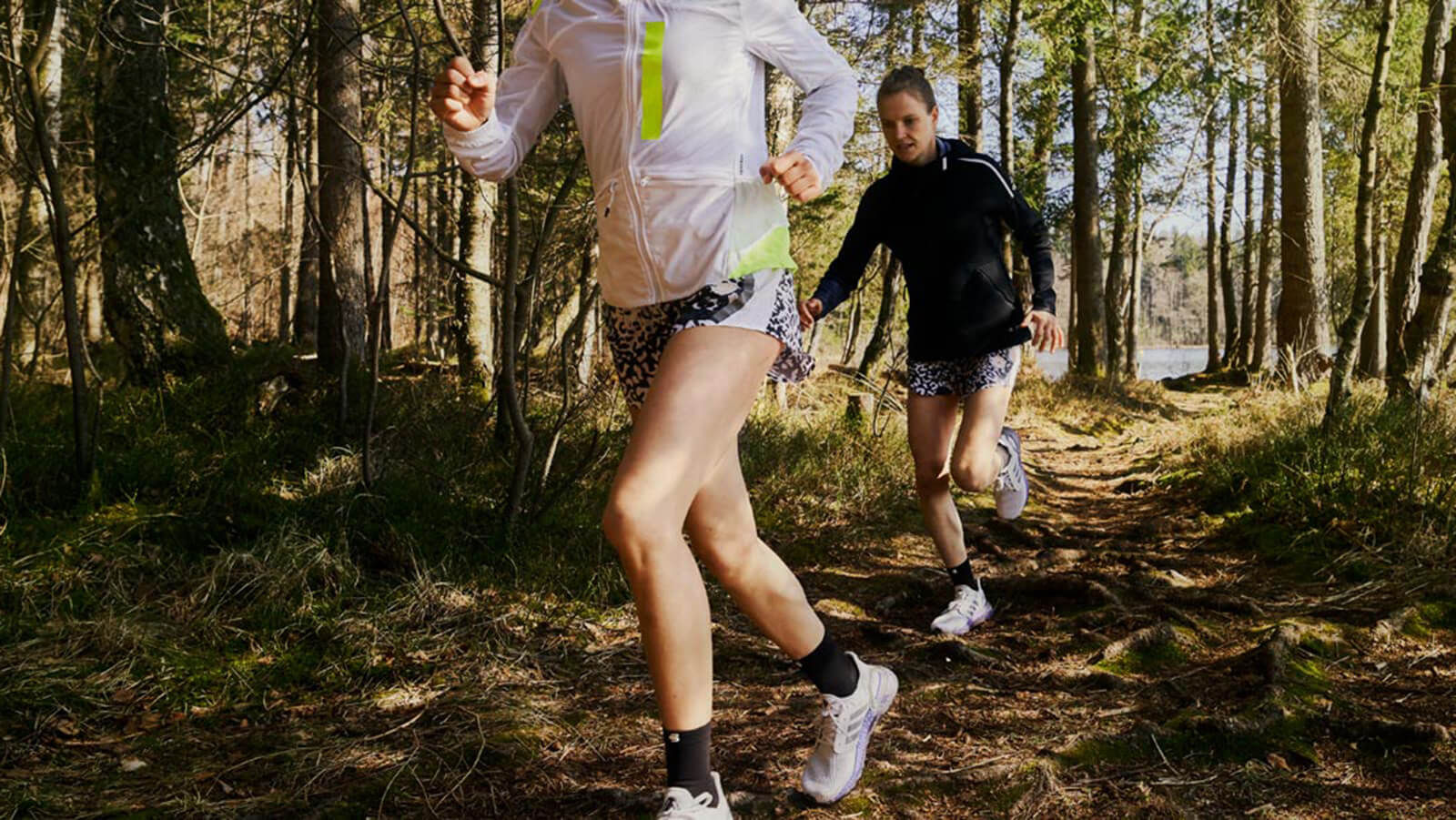
Do you experience a dull pain in the front of your knee while running, walking, squatting, kneeling or bending? Does this pain often get worse when you continue to run, walk downhill or walk down a set of stairs? Then you may be dealing with runner’s knee. Runner’s knee, or patellofemoral pain syndrome (PFPS), is a common overuse injury that affects runners, walkers, hikers, cyclists and many more. Most people recover from runner’s knee completely after a few weeks, but it can become chronic if left untreated.
What does runner's knee feel like?
You might feel a dull aching pain around or behind your kneecap (patella) where the knee connects with your thigh bone (femur). This pain is commonly known as runner’s knee. Runner’s knee is not caused by immediate trauma. Instead, it gradually develops and can worsen over time. Other symptoms may include a grinding or popping feeling inside the knee as well as swelling or inflammation.
What causes runner's knee?
The cause of runner’s knee is usually excessive strain. The constant bending and stretching of the knee joint during running causes pressure and rubbing on the underside of the kneecap while it glides over the thigh bone. Prolonged strain can irritate cartilage within the knee which, if not treated, results in runner’s knee.
Whether or not you develop runner’s knee depends on different factors, including the intensity of your training, the terrain of your running or walking routes and your individual anatomy. If you want to find the cause of your runner’s knee, ask yourself the following questions:
- Have you trained too hard?
- Are your running shoes old or is that particular model unsuitable for your feet?
- Have you been running on a lot of hilly trails, downhill in particular?
- Are your muscles too weak?
- Have you stretched adequately?
Those who have just started to run often approach it with too much gumption. That is, they often increase the intensity of their training too quickly and do not spend enough time recovering. Of course, experienced runners are not exempt either. Ambitious runners sometimes forget to listen to their bodies if they are too focused on personal bests or the upcoming marathon season, which can lead them to push too hard.
When to see a doctor?
While runner’s knee can generally be treated at home, you should see a physician if the pain in your knee does not subside within a few days or if you suspect that your knee has been injured. This allows you to get an accurate diagnosis and begin treatment if necessary.
How to treat runner’s knee?
We know how hard it can be to give up your running or walking routine. However, treating your runner’s knee is the first step to healing and avoiding it in the future. There are several ways to treat runner’s knee, including home remedies and advanced therapy.
You can speed up the healing process by wearing a knee brace or support with medical-grade or targeted compression. For example, Bauerfeind's Sports Knee Support stabilizes your knee to relieve pain and swelling, which is particularly important at the start of the healing process when your pain is the most severe.
Home remedies
- Rest to avoid excessive strain by following RICE Therapy (Rest, Ice, Compression, Elevation).
- Speed up your healing process with the Bauerfeind Sports Knee Support to stabilize the knee joint and relieve pain.
- Take over-the-counter anti-inflammatory medication (NSAIDs) such as Ibuprofen to reduce pain and inflammation.
- Do gentle stretching and strengthening exercises.
Advanced therapy
- Perform exercises to strengthen the muscles around the knee (preferably guided by a physical therapist).
Sports Knee Support
With Omega pad to redistribute pressure to protect against overloading the tendons and knee cap.
Recovery
Even if you are training for a marathon, you need to take it easy to fully recover from runner’s knee. This can be done by modifying your training plan. Instead of running, do some training on the bike or swim some laps in the pool. Adding the Bauerfeind Sports Knee Support can also help you get back on your feet faster.
You can slowly get back to your old level of activity when you can:
- Bend and straighten your knee without pain
- Feel no pain while walking, running or jumping
- Your injured knee feels as strong as the other knee
You might also be interested in:
Best Knee Brace for Runner's Knee
Discover our choice for effective and lasting relief.
Patellar Tendonitis
Read more about symptoms, causes and treatment.
Pes Anserine Bursitis
What is pes anserine bursitis, and how is it treated?
Sore Knees while Running
Learn how to prevent sore knees before it starts.
This information is provided for general information purposes and should not be relied on as a substitute for medical advice, evaluation or care from a qualified and licensed health care provider. The information contained here is not to be considered a plan of care of physical therapy.



